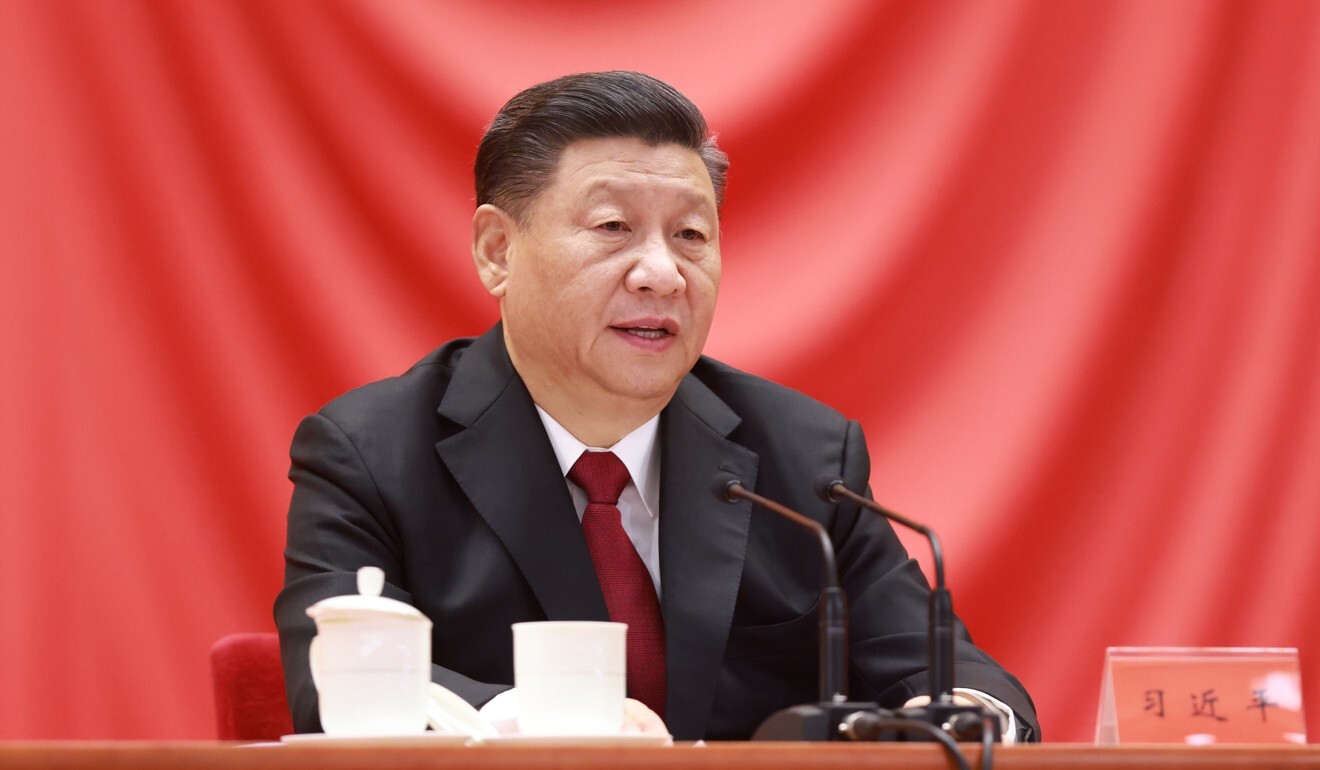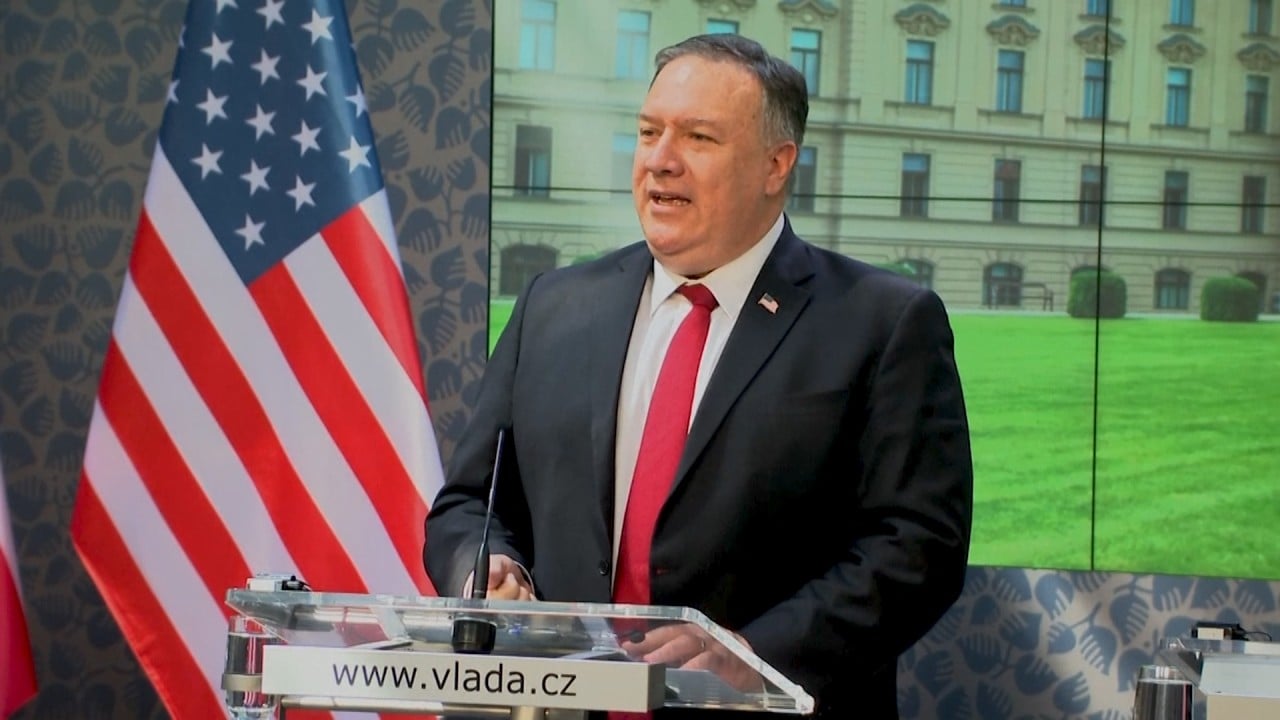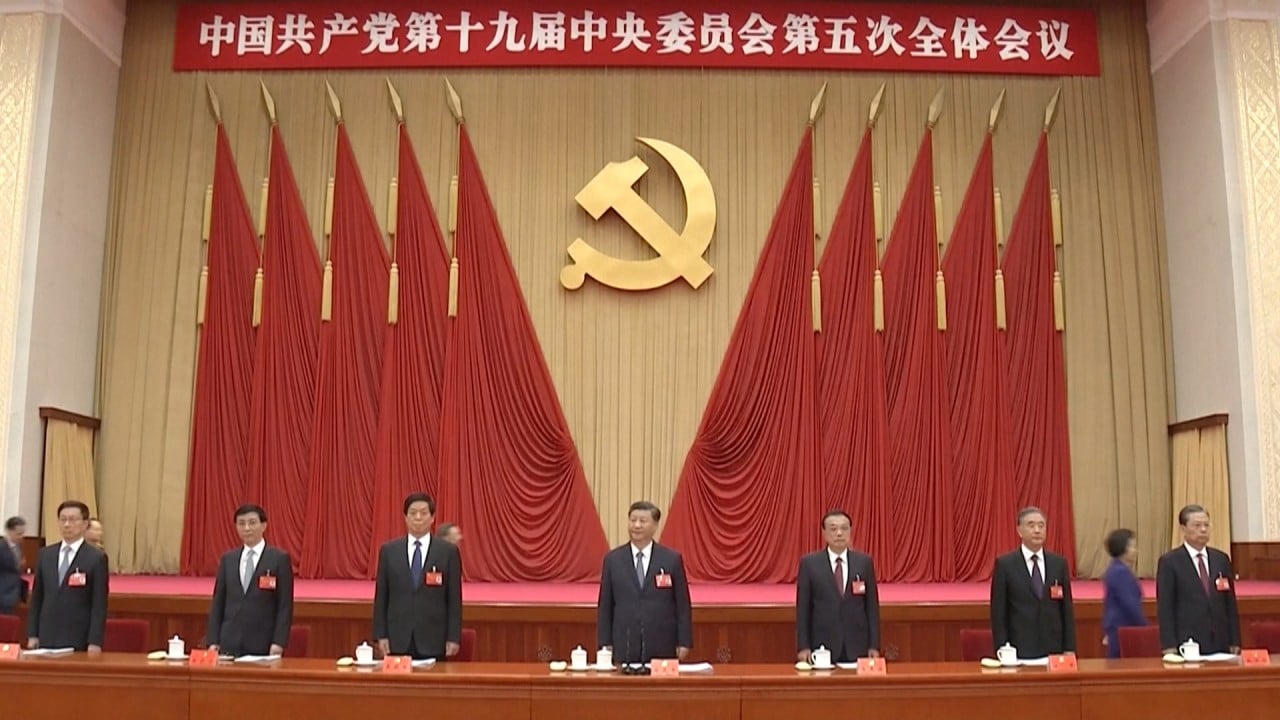
Why did China’s Communist Party elite need a lecture on the US?
- A top specialist in American-Chinese relations addressed the Politburo on national security last week
- Concern is growing that Beijing’s struggle with Washington could bring more political turmoil at home, observers say
This was the Politburo’s first group study session on national security since April 2014, when Wang Yongqing, the then secretary general of the party’s top security organ – the Central Political and Legal Affairs Commission – briefed it on counterterrorism matters.
Yuan, 53, spent his entire career in the institutes, one of China’s biggest and most influential research bodies for international studies affiliated with the Ministry of State Security. He was a visiting scholar at the Atlantic Council from 1999 to 2000 and the Brookings Institution from 2003 to 2004.

State media reported that President Xi Jinping presided over the study session, saying the party had “absolute leadership” in national security matters, from political security, to public safety and the national interest.
The session comes after the party included a dedicated chapter on national security in its latest five-year plan for the first time, with concern growing that China’s struggle with the United States will bring more political turmoil at home.
Alfred Wu, an associate professor at the Lee Kuan Yew School of Public Policy at the National University of Singapore, said the official summary of the session did not mention the China-US rivalry directly, but the issue was the top concern for Chinese leaders.

00:43
China’s Communist Party at odds with entrepreneurship, says US Secretary of State Pompeo says
Wu said that only the US could threaten to derail Xi’s grand plans for the next 15 years.
“In the short term, the study session could be part of Xi’s team preparations on the possible turbulence during the US’ power transition [from Donald Trump] to [president-elect Joe] Biden,” he said.
Chinese President Xi Jinping urges party to be alert to national security risks
“In the longer term, Xi is preparing for the Communist Party’s 20th national congress to be held in 2022 and he is trying to deliver all the promises made in the new five-year plan and national development plan for the next 15 years. But Sino-US relations can impact almost every aspect of China’s national and security plan profoundly.”
A political science researcher with the Central Party School said the biggest challenge in implementing the Chinese model of “holistic national security” was to work out the details of intelligence-sharing and decision-making between the various party and state bodies.

03:05
What happened at the Chinese Communist Party’s major policy meeting, the fifth plenum?
“Now security is no longer just the job of the party’s security organs but all the top cadres will have a role to play. We will need to learn and adopt the good practices from the US and its ‘Five Eyes’ partners,” said the researcher, who declined to be named because of the sensitivity of the issue.
“They have a longer history of operating integrated homeland security and global intelligence operations.”
Wang Yiwei, an international relations professor at Renmin University in Beijing, said that anti-China hawks in the US were trying to drive a wedge between the party and the Chinese people, meaning China’s ruling party had to keep its leadership role stable.
“We are facing a new era with the restoration and reconstruction of the world order after the pandemic. At the same time, the rivalry between China and the US is increasingly becoming an ideological struggle,” Wang said.
Why China’s hopes for a reset with US may be in vain
He said that after Biden took office the US’ threat to China could be “more severe and [the US] will deal with China in a more systematic way”.
He said China would need to be vigilant against risks related to opening up of the country’s service and financial sectors and in new areas such as digital security.
“We might lose everything if we make careless mistakes,” he said.
Additional reporting by Wendy Wu

